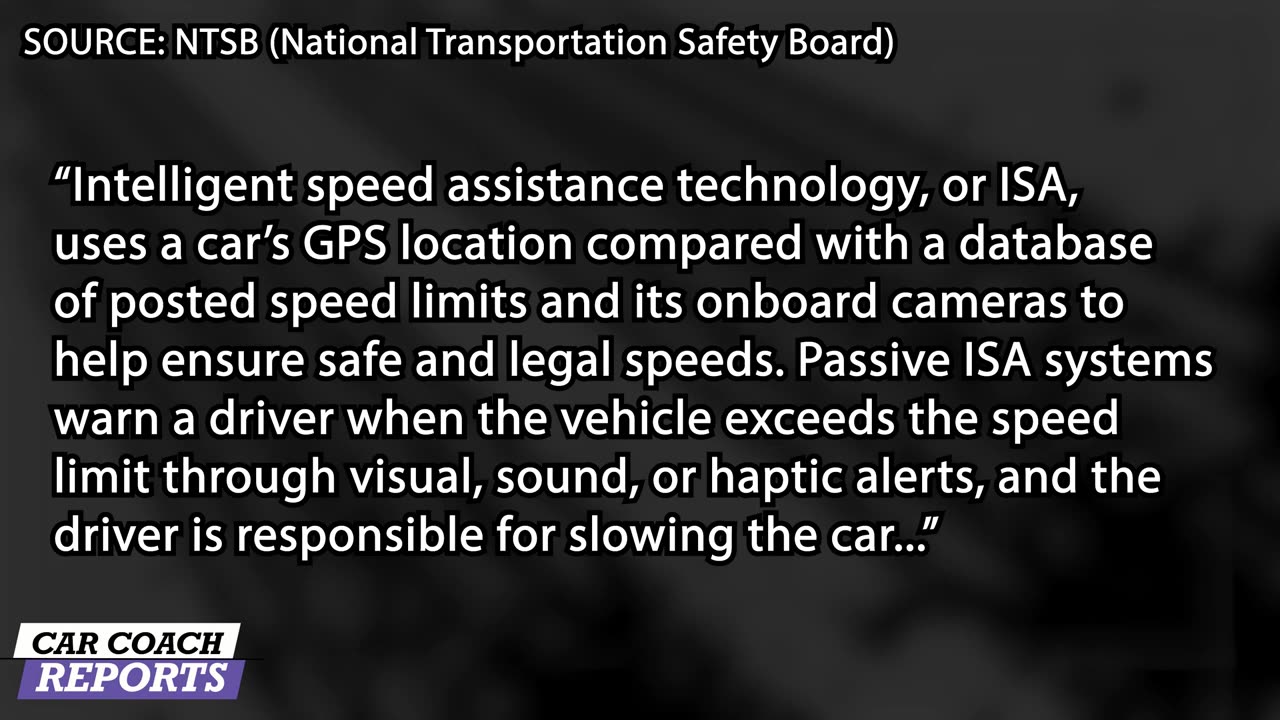Premium Only Content

231124 National Transportation Safety Board WANT Speed Limiters in Cars.mp4
Apr 12, 2024 ................................ 7:30
2 products
Car Coach Reports earns commission on tagged products
Is cybersecurity a big problem in the auto industry? More than you realize. As cyber attacks ramp up, electric vehicles are vulnerable. You’ll be stunned to hear how many cyber attacks the auto industry has to fend off every day–something that doesn’t get talked about much publicly.
Mandates for electric-vehicle sales have raised concerns over poorly defended charging stations and the possibility of hacks of wider power grids. Europe and the U.S. push to ramp up development and sales of electric vehicles, researchers are concerned that cybersecurity is being neglected. Recent attacks could come in through the charging network, this is very concerning.
In the worst of cases, hackers could engineer blackouts and do damage to entire electric grids by infiltrating charging stations and networks, officials and security analysts warn. But how does this affect your vehicle while charging.
Britain’s Royal United Services Institute think tank said “the proliferation of EV charging stations and related devices being connected to the grid is widening the attack surface.”
According to the Israel-based Upstream firm, from 2019 to 2023 disclosed cybersecurity incidents in the automotive and mobility space increased by more than 50%.
Last week we discussed the data collection and the connectivity of our vehicles. As our cars have more software and computer processes we open our vehicles up to cyber hacking.
But there is more on a larger scale, last year, the National Institute of Standards and Technology created guidance that called on companies deploying fast chargers to secure their digital payment systems. The government’s report said that in 2023, the US had more than 48,000 public charging stations, and they “connect and communicate with cloud providers and third-party vendors for electric vehicle charging station location information, billing and other services.”
The cyberattacks are not just theoretical. Each of these systems represents a set of interconnected attack vectors. EVs, for example, interface with dealerships, mobile phones, navigation, mapping, telemetry, entertainment, vehicle-based web browsers, other vehicles, driver assist systems, over-the-air software updates, and more.”
Many home users leave their cars connected to chargers even if they aren’t drawing power. They might, for example, plug in after work and schedule the vehicle to charge overnight when prices are lower. If a hacker were to switch thousands, or millions, of chargers on or off simultaneously, it could destabilize and even bring down entire electricity networks.
Think this can’t happen? It already has, the United States glimpsed what such an attack might look like in 2021 when hackers hijacked the Colonial Pipeline and disrupted gasoline supplies nationwide. The attack ended once the company paid millions of dollars in ransom.
I’m not fear mongering, this is real. Make your passwords more difficult, change them often, and when done charging your vehicle, disconnect your vehicle. There is more on this coming and we will keep you posted.
Thanks for watching!
-
 3:09:10
3:09:10
Barry Cunningham
9 hours agoPRESIDENT TRUMP HAS TAKEN THE MONSTER AWAY FROM THE LEFT! HORROR STORIES WON'T WORK ANYMORE!
69.6K72 -
 1:29:55
1:29:55
WickedVirtue
3 hours agoLate Night Fortnite w/ Friends
35.5K -
 3:34:06
3:34:06
This is the Ray Gaming
4 hours ago $0.29 earnedCould you be? Would you be? Won't you be my RAYBOR? | Rumble Premium Creator
20.8K -
 1:46:52
1:46:52
JahBlessGames
5 hours ago🎉Come een' and come tru' - VIBES | MUSIC | GAMES
31.1K -
 38:47
38:47
MattMorseTV
6 hours ago $11.59 earned🔴Tulsi just CLEANED HOUSE.🔴
59.2K97 -
 6:24:06
6:24:06
Reolock
7 hours agoWoW Classic Hardcore | WE'RE BACK!!
20.9K1 -
 3:46:13
3:46:13
SynthTrax & DJ Cheezus Livestreams
9 hours agoShell Shock Live - The Scorched Earth Remake/Upgrade - 4pm PST / 7pm EST - RUMBLE GAMING
43.6K -
 2:56:57
2:56:57
Illyes Jr Gaming
5 hours agoBack to Black .....Ops 6 w/ ILLYESJRGAMING
25.4K1 -
 1:07:59
1:07:59
BonginoReport
9 hours agoBoston Mayor Defies Trump, Protects Illegals - Nightly Scroll w/ Hayley Caronia (Ep.115)
126K89 -
 40:45
40:45
Donald Trump Jr.
9 hours agoPeace by Peace: Solving One Problem After Another | Triggered Ep.268
74.6K64